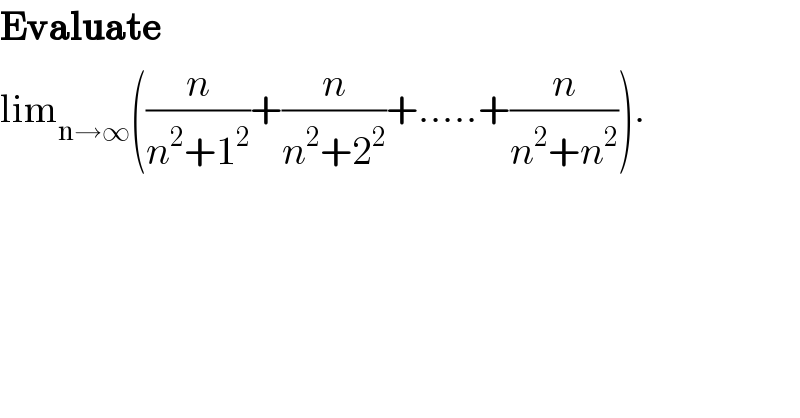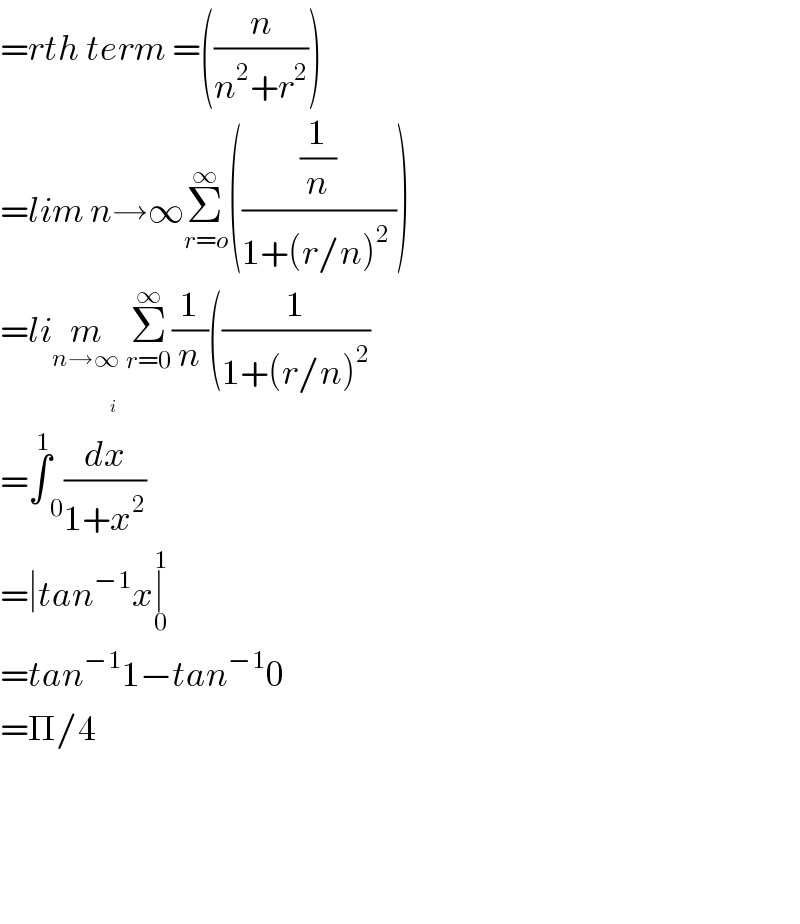
Question and Answers Forum
Question Number 34367 by rahul 19 last updated on 05/May/18

Answered by tanmay.chaudhury50@gmail.com last updated on 05/May/18

Commented by rahul 19 last updated on 05/May/18

Commented by math khazana by abdo last updated on 05/May/18

Commented by tanmay.chaudhury50@gmail.com last updated on 05/May/18

Commented by tanmay.chaudhury50@gmail.com last updated on 05/May/18

Commented by tanmay.chaudhury50@gmail.com last updated on 05/May/18

Commented by tanmay.chaudhury50@gmail.com last updated on 05/May/18

Commented by tanmay.chaudhury50@gmail.com last updated on 05/May/18

Commented by rahul 19 last updated on 05/May/18

Commented by abdo mathsup 649 cc last updated on 05/May/18
![let take S_n =[ (1+(1/n^2 ))(1+(2^2 /n^2 ))....(1+(n^2 /n^2 ))]^(1/n) ln(S_n ) =(1/n)ln( Π_(k=1) ^n (1+(k^2 /n^2 ))) =(1/n) Σ_(k=1) ^n ln(1+((k/n))^2 )→∫_0 ^1 ln(1+x^2 )dx ∫_0 ^1 ln(1+x^2 )dx = [x ln(1+x^2 )]_0 ^1 −∫_0 ^1 x ((2x)/(1+x^2 ))dx =ln(2) −2 ∫_0 ^1 ((x^2 +1−1)/(1+x^2 ))dx =ln(2) −2 +2 ∫_0 ^1 (dx/(1+x^2 )) =ln(2) −2 + +2 (π/4) = ln(2) +(π/2) −2 so lim_(n→+∞) S_n = ln(2)+ (π/2) −2 .](Q34412.png)
